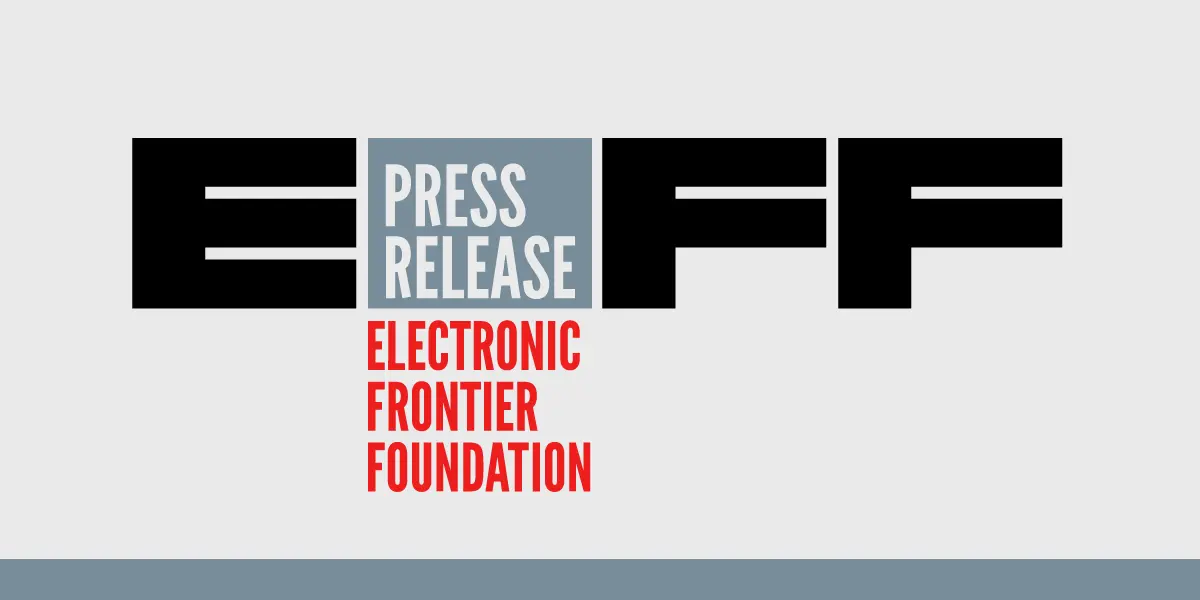New to Lemmy. A privacy advocate. Interested in number theory.
- 29 Posts
- 116 Comments
 2·11 months ago
2·11 months agoThe blog post says, “it is possible to build technology used by millions of people with privacy at the heart.” which is also related to Monero, for example. It’s related to online privacy in general, not exclusively about Tor. For example, it includes a clear answer to the “Nothing to hide” argument:
http://wl.vernccvbvyi5qhfzyqengccj7lkove6bjot2xhh5kajhwvidqafczrad.onion/wiki/Nothing_to_hide_argument?lang=enIt’d be nice if even a single non-Tor user is interested in this… but if the link is onion, a non-Tor user can’t read it! Hence a clearnet link… Does that make sense? I too agree with you that, basically, we better promote onion when available. Except I wanted to share the link with people in general, non-Tor users too :)
 2·11 months ago
2·11 months agoThanks for the suggestion. ONION LINK added in the post. The main link itself is intentionally clearnet, for happiness shall be in heaven over one non-Tor user who feels curious about Tor and privacy, more than over 99 right users, who already use TB 24/7. (Luke 15:7)
TB recently gets rid of blockchair: http://eweiibe6tdjsdprb4px6rqrzzcsi22m4koia44kc5pcjr7nec2rlxyad.onion/tpo/applications/tor-browser/-/issues/42283
and is planning to get rid of Google etc. from its Search Engine Options http://eweiibe6tdjsdprb4px6rqrzzcsi22m4koia44kc5pcjr7nec2rlxyad.onion/tpo/applications/tor-browser/-/issues/41835
Tor Browser is planning to remove Google from the search engine options a user can choose: https://gitlab.torproject.org/tpo/applications/tor-browser/-/issues/41835
There some say brave onion + no JS is good: https://search.brave4u7jddbv7cyviptqjc7jusxh72uik7zt6adtckl5f4nwy2v72qd.onion/
Mullvad team seems to be considering 4 possible options:
- Startpage: https://www.startpage.com/
- Mojeek: https://www.mojeek.com/
- Brave Search: https://search.brave.com/
- Metager: https://metager.org/
PS: Not disgussing ddg / ddg onion too much, basically because ddg is the long-time default search engine of TB. Most TB users assume ddg is a decent, standard, generic option, esp. its non-JS version.
 1·11 months ago
1·11 months agoPure P2P may survive. It’d be less convenient, though, if privacy coins were outlawed and business companies (e.g. hosting) couldn’t legally accept them!
 1·11 months ago
1·11 months agoNot necessary the traditional system itself is hated; but in several countries, regulations are becoming more and more inconsistent, unreasonable, unfair, inconvenient. Some government may become increasingly more corrupt…
Yet I’m not necessarily too optimistic. If “they” become really serious, perhaps they can practically shut down privacy-focused crypto… Thoughts?
 1·11 months ago
1·11 months agoThey are a Nobel Peace Prize laureate, & their vanity onion says L337 :D
amnestyl337aduwuvpf57irfl54ggtnuera45ygcxzuftwxjvvmpuzqd.onion

 3·11 months ago
3·11 months agoAgreed. It’s an option worth considering (even EFF said so)—in fact a bridge itself could be run by something like Team Cymru (Augury), removed in TB v11.5.4. On the other hand, a VPN could collaborate with “them” so you’ll have to trust them… adding yet another unknown.
There are many ways to de-anonymoze Tor users indeed. Like Keystroke fingerprinting or Deep Packet Inspection… Usually a local ISP is not a big problem but it depends. The fact remains that even in a country with heavy Internet censorship, currently a nation-state can’t block Tor (via Bridge or Snowflake).

 5·11 months ago
5·11 months agoAlso, one should consider using Bridges (obfs4), so that your local ISP may not know you’re on Tor. Tails suggests that too. Using a VPS is not necessary a best option for that, though it might be a good option under some situation.

 2·11 months ago
2·11 months agoActually, Proton + your local key = don’t work very good. Usually you’ll have to use a key pair generated by Proton—sharing your sec with the provider is not good.
Nevertheless, Proton is 100 times better than Google to be sure. Those who are trying to ditch Google, Proton and Tuta are two good options to consider, also recommended by PrivacyGuides. For those who had ditched Big Tech and now starting to wonder if Proton is okay… that’s a bit tricky, still I say Proton is nod bad. I had recommended Proton to my friends until the French activist incident, followed by a few more bad incidents. Yet it’s understandable that Proton must obey it if they get a valid court order… If you’re a normal, daily user, Proton is good enough (if not the best), albeit a bit overpriced.

 2·11 months ago
2·11 months agoNot a recommendation but I too trust Disroot pretty much. You can get a custom domain there without “buying a paid plan” once you make a donation. Would that be an option for you?
Using multiple providers (having multiple accounts) is a good idea, though. Don’t put all the eggs in one basket. I’ve never heard the two providers you mentioned, so I can’t tell. If you can sign up anonymously via Tor, if they’re Google-free + not behind CF, and (most importantly) if you feel them “good” (subjective but gut feeling…), I think they’re usable.
If their support use PGP, that’s a good sign too. (Proton even doesn’t share its pub key iirc.) If they also accept the privacy coin like Disroot and Tuta do, that’s nice too. Ultimately, though, believe your gut feeling, because everyone has different priorities, different threat models, etc.

 6·11 months ago
6·11 months agoWhile doing this is generally not recommended, EFF does indeed suggest this option in some context: https://ssd.eff.org/module/choosing-vpn-thats-right-you#things-to-consider-what-vpns-don-t-do

 3·11 months ago
3·11 months agoDon’t worry about e2ee: Even if you get the most expensive plan from e.g. Proton, it’s not e2ee unless both parties use Proton. There is a free, “easy” way to realize true e2e: OpenPGP in Thunderbird (convenient), GnuPG (more secure), etc.
As for mailbox.org: I used it before but it showed Google reCaptcha, which was an obvious red flag:
cf. [Security and GDPR Issue] ProtonMail includes Google Recaptcha for Login, every single time. #242Also, technical score of mailbox.org has been relatively low, not improving: https://internet.nl/mail/mailbox.org/1080449/ (Don’t worry too much about this score, though. It’s only technical; human factors (philosophies, trust, etc.) are more important when it comes to privacy.) This is not a recommendation. DYOR; ultimately, believe your own intuition.

 8·11 months ago
8·11 months ago- Tuta (free): you can send only like 6 email per day. Otherwise, Tor-friendly. No onion. Support forum on Reddit 😞 Germany.
- Posteo.de: 1 €/mo affordable. Nothing fancy. Support via PGP like that’s common sense. Germany. Non-crypto anonymous payments w/ various options (e.g. a prepaid CC): they don’t even ask your name (much less address, cell phone number).
- Disroot.org: Free, pop/smtp, community-based, trusted even by the Tails team. w/ onion. Netherlands.
- Cock.li: Free, pop/smtp etc. Very Tor-friendly w/ fast onion. It’s good if you think it like disposal. Irresponsible in a way (aka Freedom), but actually 10-year-old & stable. Romania.
- Proton (free): bloated, very mixed opinions, yet better than Google. w/ onion (slow). Switzerland. A simple feature like Plain Text view is missing (HTML by default: not serious about privacy).

 3·11 months ago
3·11 months agoIf you mean this article on Wired itself, it’s not pay walled, though annoying. Click the V (chevron) to hide the Subscribe Now thing.
Or if it’s indeed pay-walled in your area, open it via Germany by search this -> https://metager.org/meta/meta.ger3?eingabe=A Controversial US Surveillance Program May Get Slipped Into a ‘Must-Pass’ Defense Bill
find the article, and use the “OPEN ANONYMOUSLY” link. Many annoying things will be filtered too.
Confusing but the official site is not monero.com but www.getmonero.org, where you can see the full list of officially suggested wallets. Official GUI is a safe option. Feather is also good, Electrum-like.
Cake (Monero.com) is one of the suggested options too & is popular, but certainly not “most private“. With Feather, you can do everything over Tor, more privacy-friendly.
Most Monero users only use non-custodial wallets; so they just say “wallets” meaning that. Technically running a local node yourself is the most secure & private—though this option is not for everyone.
The monero.com domain has been taken by a for-profit company, Cake. The Monero community is not wealthy (nor motivated) enough to buy it back.
Let’s say I’m selling you a book B and accepting a crypto payment. What if you sent me your crypto C trusting me, but I exit-scammed, vanishing without sending you B you’re trying to buy? That’d be bad. But what if I sent you B first, trusting you’ll send me C as soon as you receive B? Now you could cheat and vanish without paying. That’d be bad too.
To prevent any of those things from happening, there are a few methods. One is a 2-of-3 escrow service. Another is 2-of-2. Both based on multisig. A simplified example follows.
The book costs you 100€. You’ll send, say, 200€ to address A controlled by both you and me via multi-signature. I too will send 100€ to A. Now Wallet A has 300€. When 2 persons (you and I) sign, there will be a 2-output transaction from A to you (100€) and to me (200€), but any single person can’t move fund from A. That’s multisig.
Now I must send you the book in a good condition, because I don’t want to lose my 100€. So I’ll act carefully and honestly, and sign when I ship the book. You too will be willing to sign when you receive the book, because otherwise you can’t retrieve your 100€ (you deposited 200, when the book only costs 100). Sometimes an unexpected accident may happen, but usually something like this will work pretty well. This is one way how a P2P platform works (not very accurate, but I hope you get the idea).
You’re right. Use a centralized exchange (CEX), and you’ll be KYCed and de-anonymized. That’s why most privacy-coin users prefer DEX. For normal persons, if privacy is important, using anonymous gift cards or prepaid credit cards, which you can easily buy without ID, is more practical, much better than KYC’ed crypto.
If you can somehow get KYC-free coin, maybe from DEX, i.e. if you can get it personally from your friend or peer without showing ID etc., then and only then, you have real private crypto. There are two popular ways for this (Bisq and LocalMonero). Another option called Haveno is hopefully usable soon, but that is still iffy.
Using DEX is not essentially difficult, much safer than you might imagine due to a mechanism called multisig, but maybe this option is not for normal people. When you feel experimental, you might want to try to buy a small amount via DEX, to see what it’s like. If you’re a popular programmer or artist, accepting donations in crypto is also an easy way to get no-KYC coin. Another option is p2pooling—you can get a few Euro worth of XMR relatively easily; yet this last option is time-consuming and not very effective. Many of p2pool users or full-node people are privacy-advocating volunteers, maintaining/participating the Monero network for philosophical reasons, fully aware it’s not profitable in terms of money. This might be part of the reason why Monero tx fees are almost zero (like 1/100 of that of BTC). At the same time, there are many sketchy people around crypto too 😟 Be careful and stay safe!
It depends on how much you have, etc. If it’s just like 10 or 100 €, maybe you don’t need to be super careful.
The following is just one possible way—get a safe and libre “poor man’s hardware wallet” quickly and easily without paying:
1. Main wallet
- Get a USB stick, install Tails. This takes about an hour (most time is for downloading the .img file)
- Create a persistent storage, with a strong password (maybe 7 or 8 random words).
- Install Feather. This takes 10–15 minutes; 30 minutes if generating a new wallet. Use it as your main wallet, and send your Monero to it.
- When ready, shut down Tails. Pull out the USB and save it in a safe place. Now your wallet is physically disconnected from the Internet, air gapped. Very hard for any attacker to hack it.
2. Hot wallet
- Set up whatever wallet(s) you like on your daily device(s) for daily use. It too can be Feather, or it can be something different. Just don’t have too much money in a daily wallet.
3. When you send Monero from 1 to 2
- Insert the said USB, boot into Tails, send a necessary (small) amount from 1 to 2. Unlike BTC, the tx fees are like 1 cent or less. You can make a lot of small TXs without worrying about fees.
- Once you signed and sent, immediately close your main Feather, shut down Tails, and physically disconnect the USB again. You don’t need to wait for confirmations. It’ll be fully confirmed in 15 or 30 minutes, and for which your wallet doesn’t need to be online.
- So your daily wallet will be moderately funded, ready to use. You can enjoy private transactions, e.g. buying VPS or making anonymous donations to support your favorite software. Even if your daily wallet is hacked, your main wallet will be safe, physically disconnected from the Internet.
In theory this should work pretty well, if not the strongest possible. It’s not a recommendation, though. Do your own research. You may want to ask the same question in [email protected]; hearing various opinions, not just trusting one person (me), is a good idea.














For those who are still on Win 7: Firefox (and so Tor Browser) will stop supporting Win 7 soon. Seriously, you better plan to migrate to Linux. Not-so-good privacy issues aside, everyone knows Windows is not very secure/safe/convenient anyway.